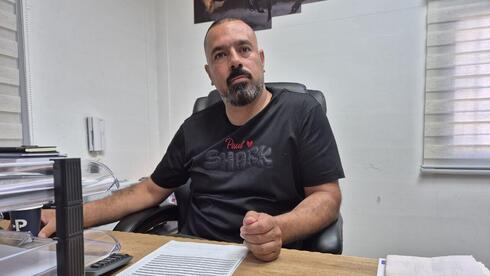The recent home purchase by Alaa Haniyeh, an Israeli Arab businessman and father of seven, in the affluent southern town of Omer has stirred controversy among local residents, some of whom falsely linked him to Hamas political leader Ismail Haniyeh, who was assassinated in Tehran last year.
Haniyeh, who grew up in the nearby Bedouin town of Tel Sheva, purchased the house after years of searching for a suitable home for his family. He currently serves as CEO and co-owner of Plastop, a plastics manufacturing company in Dimona, which he founded in 2018 with a business partner from Omer.
“People are reacting based only on my last name,” Haniyeh said. “I have no connection whatsoever to Ismail Haniyeh. I’ve never harmed anyone, and once people in Omer get to know me, they’ll only benefit.”
In local WhatsApp and Facebook groups, some residents expressed opposition to the sale. “After October 7, such deals between Jews and Arabs are less acceptable,” read one comment shared in a local group. Others claimed efforts were underway to pressure the seller to cancel the deal.
Despite the pushback, Haniyeh said the purchase will go ahead. “I’ve read most of the comments—some of them were outright racist,” he said. “But I understand the seller. He was pressured. Still, we’re moving forward.”
Haniyeh emphasized his family’s deep roots in Israeli society. His wife’s family, the al-Kirnawi clan, includes members who fought in Gaza, and his maternal grandmother’s family, the Abu Latif clan, lost relatives in the war. “You can’t judge someone by the cover. You have to read the book,” he said. “I’m proud to become a resident of Omer, and I’m sure people will regret how they acted.”
He said the experience has only strengthened his family’s resolve to move. “What happened made my wife even more determined. It’s frustrating—this is racism. But we live in a democracy, and we don’t want to escalate this.”
The backlash, he added, highlights broader tensions around integration and identity in mixed areas of Israel. His business partner, a longtime Omer resident, echoed that view. “People live together in Jaffa in mixed neighborhoods,” he said. “We need more mixed communities. Judging people by religion or ethnicity only creates conflict.”
Omer Mayor Eran Badash responded to the controversy by acknowledging the sensitivity around the buyer’s name. “The uproar is because of the name—Haniyeh,” he said. “It’s associated with October 7, and I understand the concern. But I don’t support calls not to sell to Arabs. We’re a free market in a democratic country.”
Badash said the town aims to preserve its character and is working to prioritize IDF soldiers and reservists in new housing developments. “The community has its role, and so does the council,” he said. “But in the end, we’re a democracy.”

